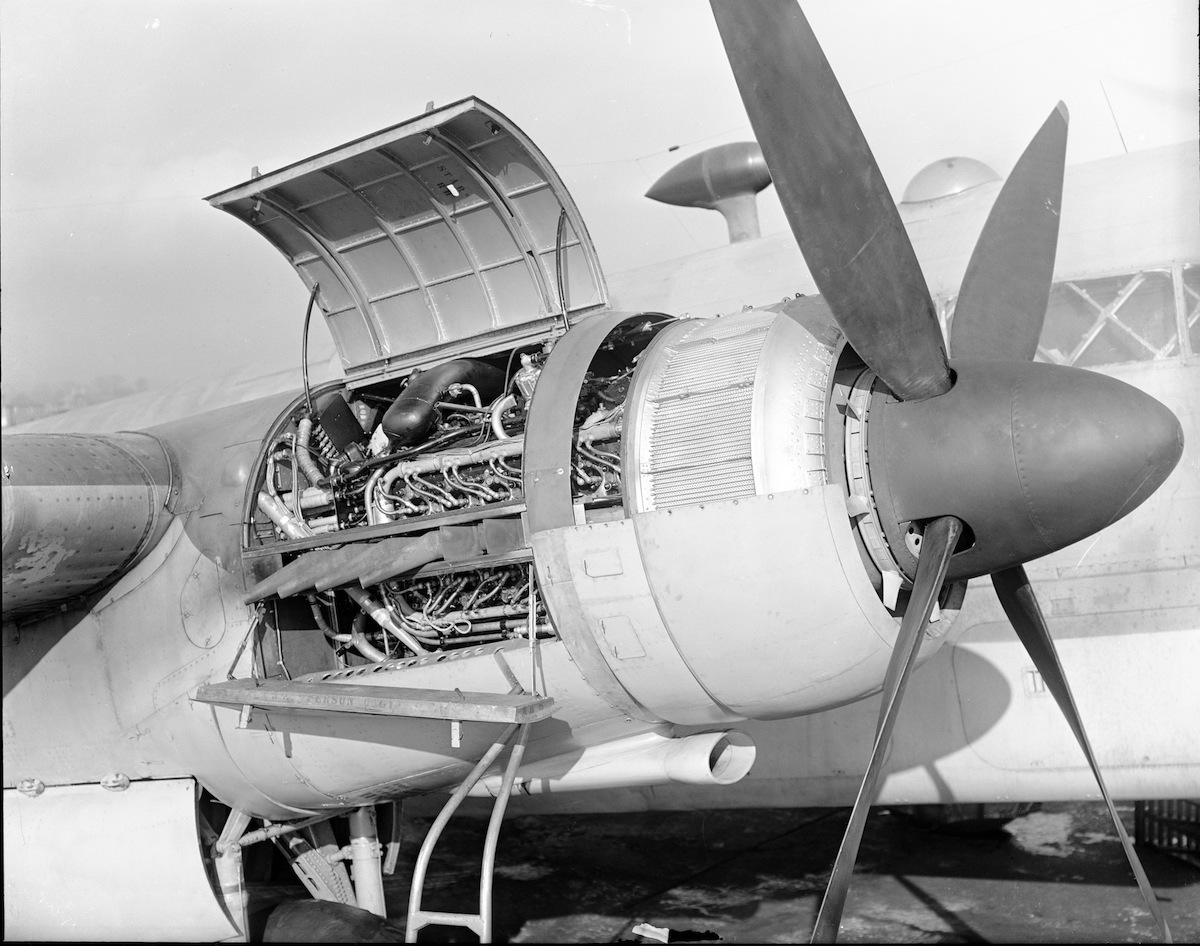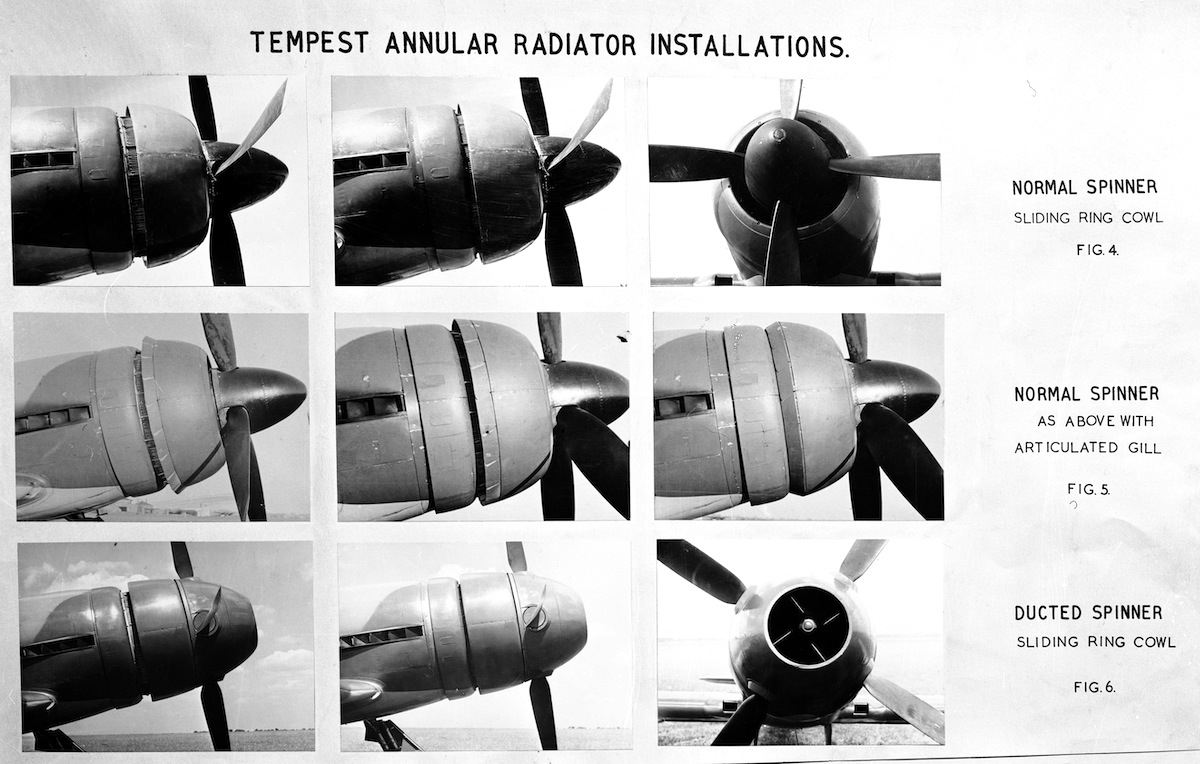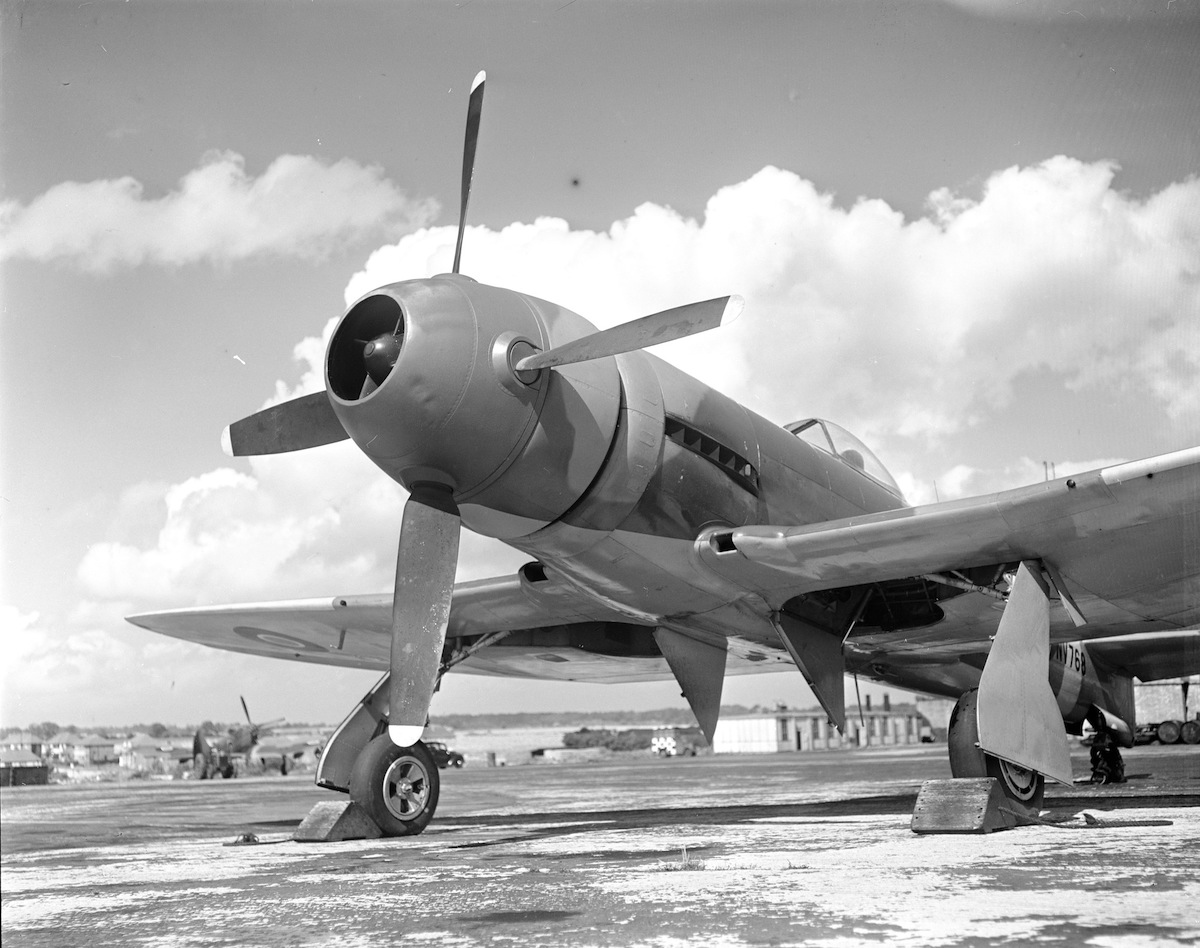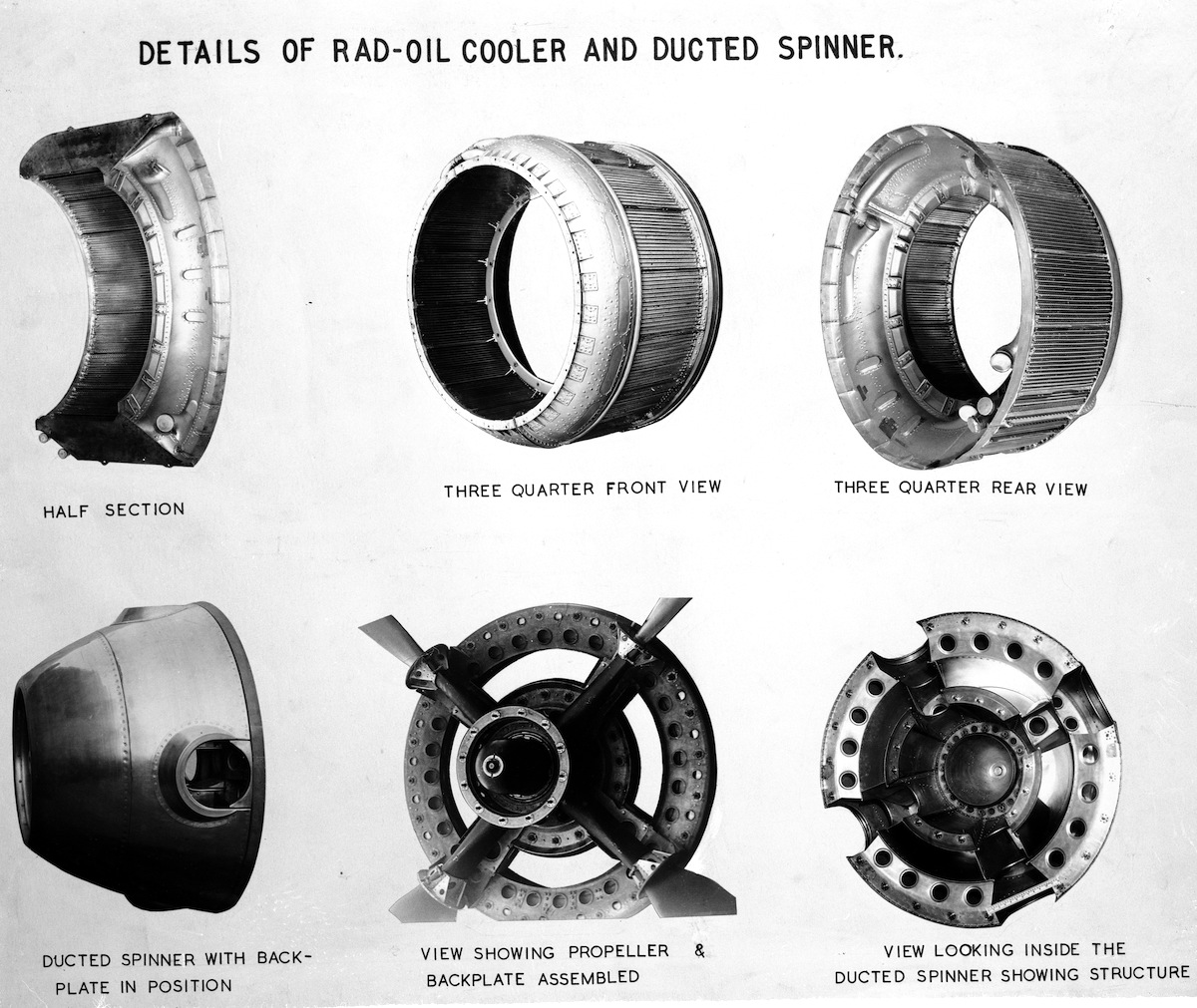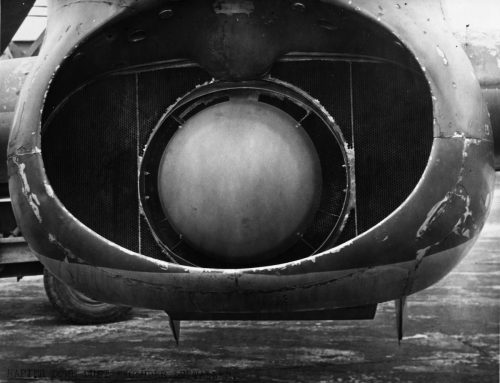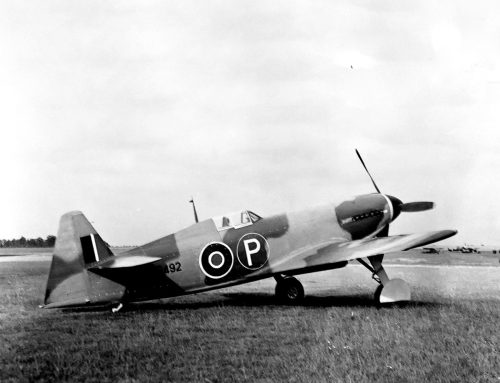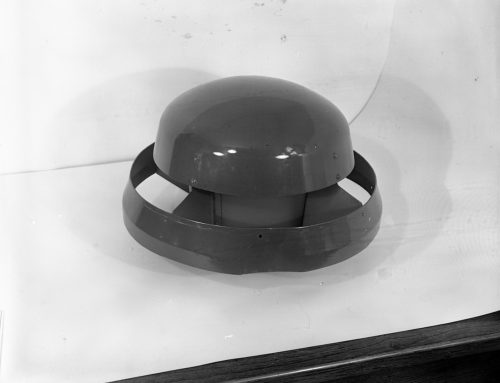Both the Hawker Tempest and Typhoon aircraft featured an instantly identifiable and large ‘chin’ radiator. This was because the aircraft required sufficient airflow to cool the large and powerful Napier Sabre engine. However the “cooling drag” created by the chin radiator has been claimed to comprise 13% of the total drag in the Hawker Typhoon Mk.V aircraft. By fitting an annular radiator this was apparently reduced to just 4.5%.
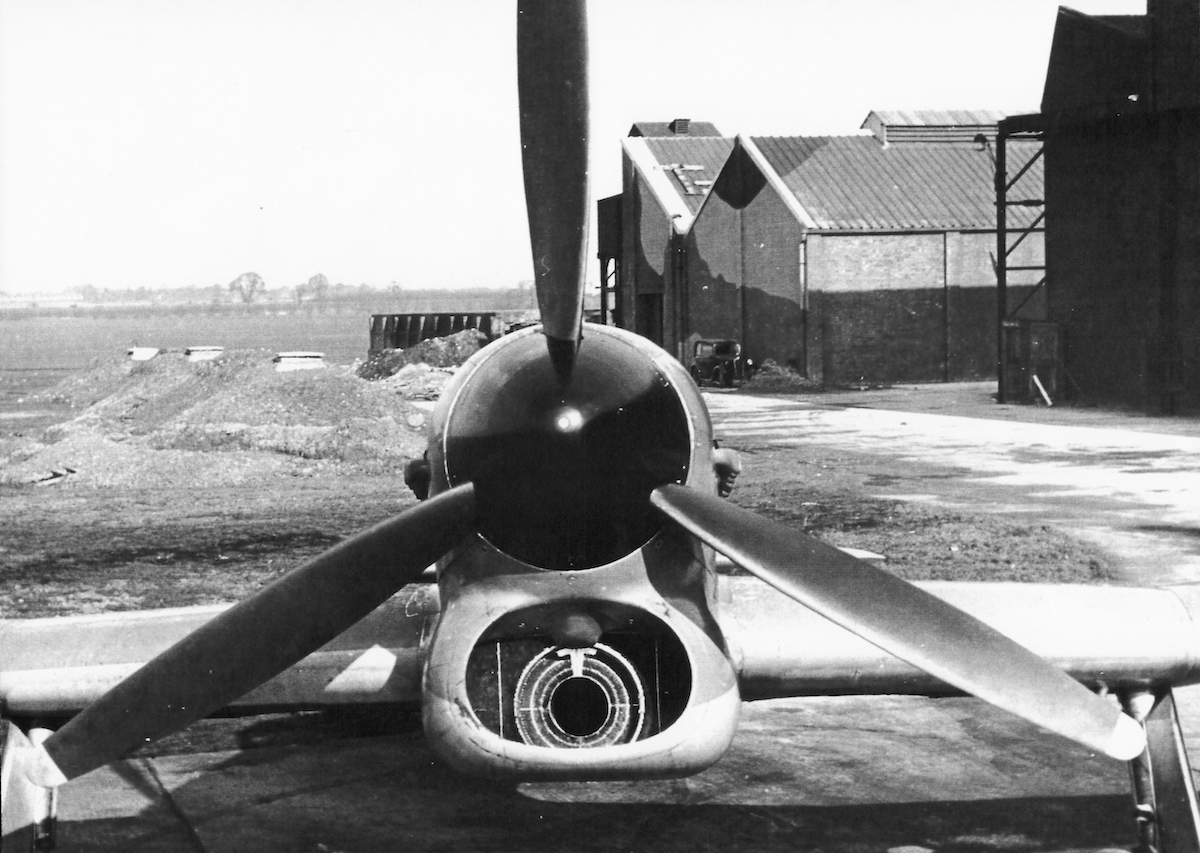
Napiers spent a great deal of time researching and developing a range of solutions. The requirement was to allow sufficient airflow across the radiator with adjustment to correctly regulate the cooling. This requirement increased as the engine Series was developed and required extra cooling.
The solution was to create an annular radiator allowing air to pass through the spinner of the aircraft. As can be seen in the images several types of annular radiator were tested and developed. In reality very few Sabre engined aircraft actually received this modification due to the aircraft no longer being required after the end of the war. The unique Vickers Warwick HG248 was the only twin engined Sabre aircraft and was fitted with annular radiators.

